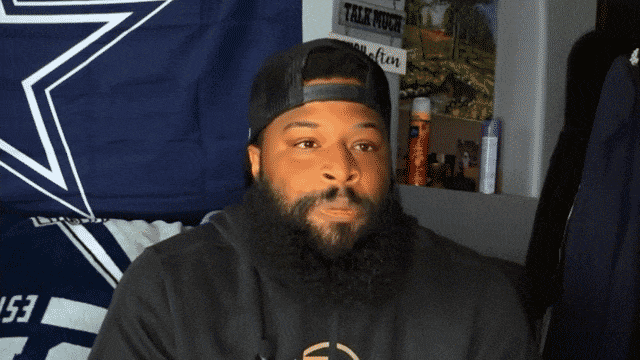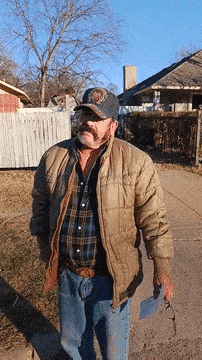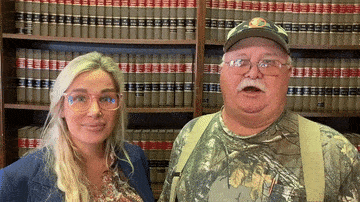“Texas Tough” McKay Law
Texas Parking Lot Accident Lawyer
If you’ve been in a parking lot accident, you might feel overwhelmed by the uncertainty of what to do next. At McKay Law, we specialize in helping individuals just like you secure the compensation and justice they deserve. With extensive experience in handling parking lot accident cases, we understand the challenges you face and are here to guide you through every step. Our personalized and compassionate approach ensures that your case gets the attention it needs while we fight tirelessly to protect your rights. Trust McKay Law to be the steadfast advocate you need during this difficult time.
NO FEES UNLESS WE WIN!
We only get paid when you get paid.
Receive Immediate Medical Care
Get the medical attention you need with no out-of-pocket cost in most cases.
24/7 Access To Us
We are here for you 24/7 so you can focus on healing.
Client Satisfaction
McKay Law has a reputation to be proud of with 300+ 5 star Google Reviews.
Texas Parking Lot Accident Attorney | McKay Law
Navigating the aftermath of a parking lot accident can be overwhelming and stressful. You may be dealing with medical bills, costly vehicle repairs, lost wages, and the frustration of coordinating with insurance companies. It’s easy to feel lost and unsure of where to turn.
At McKay Law, we specialize in handling parking lot car accident cases across Texas. Our experienced team is dedicated to guiding you through every step of the process and fighting for the compensation you deserve.
Whether it’s negotiating with insurers or representing you in court, we’re here to ensure your rights are protected and you get the support you need.
Understanding Parking Lot Accidents in Texas
Parking lots can be deceptively dangerous, often presenting more risks than people realize. From distracted drivers rushing to find a spot and poor visibility caused by inadequate lighting to improperly maintained premises full of unmarked hazards, a range of issues can create the perfect conditions for accidents. Common scenarios include:
- Vehicle collisions: Drivers backing out of spaces or failing to yield to oncoming traffic often cause crashes.
- Pedestrian injuries: Pedestrians navigating parking lots are at risk of being hit by inattentive drivers.
- Slip-and-fall accidents: Wet surfaces, uneven pavement, or debris can result in serious injuries.
- Unmarked hazards or obstructions: Potholes, misplaced shopping carts, or poorly marked areas often catch people off guard.
At McKay Law, we understand the complexities of these cases and the intricacies of Texas laws surrounding them. Our experienced team will thoroughly investigate your accident, gather evidence, identify liable parties, and build a compelling case to help you secure the compensation and justice you deserve. You shouldn’t have to face the aftermath of a parking lot accident alone—let us fight for you.
Championing Justice: Lindsey McKay Fights for Texas Parking Lot Accident Victims
Navigating life after a parking lot accident can be complex—and often overwhelming. Beyond the physical aches and the emotional toll, victims are thrown into a sea of legal hurdles, insurance disputes, and difficult questions about liability. For Texans facing these challenges, Lindsey McKay stands as a beacon of hope, tirelessly advocating for justice. With years of legal expertise and an unmistakable passion for helping others, McKay has become a trusted ally for parking lot accident victims seeking clarity, support, and resolutions.
Parking Lot Accidents: A Hidden Epidemic
Parking lots may seem like some of the safest places on the road. After all, cars move at lower speeds compared to busy intersections or highways. However, the reality is more troubling than you might think. Parking lot accidents are surprisingly common and often lead to injuries ranging from minor scrapes to serious head trauma or spinal injuries.
The risks in parking lots stem from a range of factors. Distracted driving—fueled by people checking phones, adjusting GPS settings, or even reviewing shopping lists—plays a significant role. Poorly marked lanes, insufficient signage, and lack of adequate lighting can also create hazardous conditions. And when accidents occur, determining who is at fault becomes murky due to the informal design of most parking lots.
For victims of these accidents, the road to justice can feel uphill. Proving liability, whether it’s a reckless driver, an inattentive pedestrian, or even the parking lot owner, can be an intricate process. This is where Lindsey McKay’s unique legal expertise becomes invaluable.
Compassion Meets Expertise
Lindsey McKay isn’t just a lawyer; she’s an advocate who deeply empathizes with her clients. Her approach is rooted in active listening—making sure that every victim she represents feels heard, valued, and prioritized. This compassion drives her unparalleled dedication to achieving the best outcomes for her clients.
Armed with years of knowledge in personal injury law and an exceptional understanding of Texas liability standards, McKay tackles cases with meticulous attention to detail. Her comprehensive strategies are designed to overcome the bottlenecks that often frustrate accident victims—especially when dealing with uncooperative insurance companies or elusive property owners.
Tackling Insurance Claim Challenges
One of the prominent hurdles in parking lot accident cases lies in navigating insurance claims. Insurers often seek to minimize payouts, and victims, unfamiliar with insurance bureaucracy, can inadvertently say or do things that weaken their claims.
Lindsey McKay ensures that every client is fully prepared to handle correspondence with insurers. From reviewing evidence like surveillance footage and witness statements to drafting accident reports that leave no room for misinterpretation, McKay empowers her clients to stand firmly in their pursuit of fair compensation.
Uncovering Evidence and Proving Liability
Another layer of complexity in parking lot accidents is proving fault. Texas operates under a “modified comparative fault” system, which means that proving liability is crucial for determining damages a victim can collect. Failing to mount an effective case or even appearing partially at fault could drastically reduce the compensation victims are eligible for.
McKay’s investigative approach goes beyond the surface. Using resources like expert accident reconstruction teams and onsite inspections, she works to uncover critical details that help establish the facts. Whether it’s through analyzing tire marks, utilizing security footage, or identifying potential hazards in the lot’s layout, McKay leaves no stone unturned to strengthen her client’s case.
A Personalized Legal Journey
Every parking lot accident is unique. Lindsey McKay approaches each case with a bespoke plan tailored to the client’s specific circumstances. She takes into account everything from the severity of injuries to the financial burden victims may carry due to medical bills and missed work. This level of personalization ensures that her clients not only receive competent legal support but also feel genuinely cared for throughout the process.
Get the Justice You Deserve
If you or someone you know has been involved in a parking lot accident, the struggle to find clarity and justice doesn’t have to be faced alone. Lindsey McKay is here to guide victims every step of the way, turning daunting legal challenges into manageable solutions.
What Are The Most Common Types of Parking Lot Crash Injuries In Texas?
Parking lot crashes may seem minor at first glance, but they can lead to a surprising range of injuries, from whiplash and broken bones to serious head trauma. These incidents often catch drivers and pedestrians off guard, occurring in spaces designed for low-speed navigation. Yet, distractions, poor visibility, and overcrowding in Texas parking lots create a perfect storm for accidents. Understanding the common types of injuries linked to these crashes is essential for promoting safety and reducing risks in everyday environments. The most common types of parking lot crash injuries in Texas include:
- Whiplash – A neck injury caused by sudden back-and-forth movement.
- Broken or Fractured Bones – Common in high-impact collisions.
- Head Injuries – Including concussions and traumatic brain injuries.
- Spinal Cord Injuries – Leading to potential paralysis or chronic pain.
- Internal Bleeding – Often from blunt force trauma.
- Cuts and Scrapes – From shattered glass or debris.
- Emotional Injuries – Such as PTSD or anxiety following an accident
If you or a loved one has been injured in a parking lot accident, reach out to McKay Law today for experienced guidance and dedicated support in securing the help and compensation you deserve.
Negligent Drivers and Property Owners and How it Pertains to Parking Lot Injuries
Parking lot accidents are more common than many people realize, and they often involve a unique set of circumstances that make determining liability a complex process. These accidents can range from minor fender benders to serious collisions involving pedestrians, vehicles, or even property damage. What makes parking lot accidents particularly tricky is that they often occur in private spaces, where traffic laws may not be as strictly enforced, and a variety of factors—such as driver behavior, environmental conditions, and property maintenance—can all play a role.
When it comes to assigning responsibility, two key parties are often scrutinized: the drivers involved and the property owners who manage the parking lot. Negligence on the part of either—or both—can lead to accidents, injuries, and disputes over liability. Drivers are expected to operate their vehicles safely and follow basic traffic rules, even in the relatively low-speed environment of a parking lot. Meanwhile, property owners have a duty to maintain a safe environment for both drivers and pedestrians, ensuring that hazards like poor lighting, potholes, or unclear signage don’t contribute to accidents.
Understanding how negligence applies to both drivers and property owners is essential for anyone involved in a parking lot accident. Whether you’re a driver, a pedestrian, or a property owner, knowing your rights and responsibilities can help you navigate the aftermath of an incident and determine who may be held liable. Let’s take a closer look at how negligent drivers and property owners contribute to parking lot accidents and what it means for liability. Here’s a breakdown of how negligence applies to both parties in parking lot accidents:
Negligent Drivers
Drivers are often the primary cause of parking lot accidents due to careless or reckless behavior. Common examples of driver negligence include:
- Distracted Driving: Texting, talking on the phone, or not paying attention while navigating the parking lot.
- Speeding: Driving too fast in areas where pedestrians and other vehicles are present.
- Failure to Yield: Ignoring stop signs, crosswalks, or the right-of-way rules.
- Improper Backing: Not checking blind spots or mirrors when reversing out of a parking space.
- Driving Under the Influence: Operating a vehicle while impaired by alcohol or drugs.
In these cases, the negligent driver is typically held liable for damages caused to other vehicles, property, or pedestrians.
Negligent Property Owners
Property owners, such as businesses or landlords, also have a responsibility to maintain a safe environment in their parking lots. Negligence on their part can contribute to accidents in the following ways:
- Poor Maintenance: Potholes, uneven surfaces, or debris that can cause vehicles to lose control or pedestrians to trip.
- Inadequate Lighting: Dim or non-functional lighting that makes it difficult for drivers and pedestrians to see hazards.
- Lack of Signage: Missing or unclear stop signs, directional arrows, or pedestrian crossings.
- Improper Design: Poorly designed parking lots with narrow lanes, blind spots, or confusing layouts.
- Failure to Address Known Hazards: Ignoring complaints or failing to fix hazards in a timely manner.
If a property owner’s negligence contributes to an accident, they may share liability with the driver.
Determining Liability
Liability in parking lot accidents often depends on the specific circumstances and evidence, such as:
- Surveillance footage
- Witness statements
- Police reports
- Maintenance records (for property owners)
In some cases, both the driver and the property owner may share responsibility. For example, if a driver hits a pedestrian due to poor lighting and their own distracted driving, both parties could be held liable.
Key Takeaways
- Drivers are responsible for operating their vehicles safely and following parking lot rules.
- Property owners must ensure their parking lots are well-maintained and free of hazards.
- Liability is determined based on the actions (or inactions) of both parties and the specific details of the accident.
If you’re dealing with a parking lot accident, consulting with a legal professional can help clarify liability and ensure fair compensation. Let me know if you’d like me to expand on any of these points!
The Texas Tough Difference
See why so many others choose McKay Law, PLLC
With over 300 five-star reviews, McKay Law, your local Personal Injury Law Firm has earned the trust and gratitude of our clients. Every case we handle is unique, and every client’s story matters. Don’t just take our word for it—hear directly from our clients about their experiences and why they confidently recommend us to others.
Parking Lot Accident FAQ
If you're in a parking lot accident, follow these steps:
- Ensure everyone’s safety: Check for injuries and move to a safe area if it's possible without causing further risk.
- Exchange information: Gather the names, phone numbers, insurance details, and vehicle information from all parties involved.
- Document the scene: Take photos of the damage, license plates, and the overall scene, including parking lot signage or markings.
- Look for witnesses: If someone saw the accident, ask for their contact details and statement.
- Contact your insurance company: Notify them about the incident as soon as possible for guidance on the claims process.
- File a police report if needed: Some states require an official report for insurance purposes, even for minor accidents.
Determining fault in parking lot accidents can be tricky, as they often involve shared spaces and a mix of moving and stationary vehicles. Here are common scenarios and how fault is generally assigned:
- Backing out of a space: The driver reversing is usually at fault unless the other party was speeding or behaving recklessly.
- Failure to yield: Drivers exiting parking spaces or secondary aisles must yield to vehicles in the main thoroughfares. Failure to do so often makes them at fault.
- Both backing up simultaneously: Fault may be shared if two vehicles collide while backing out.
- Collisions with parked cars: The moving driver is almost always at fault in this case, especially if the parked car was properly positioned.
It depends on the severity of the accident and local laws.
- Minor accidents: If no one is injured and the damage is minimal, many jurisdictions allow you to handle the situation privately without involving the police.
- Significant damage or injuries: Report the accident to local authorities immediately. Their report can be crucial for insurance and legal claims.
- Hit-and-run: If another driver leaves the scene without providing information, you should report the incident to the police right away.
When in doubt, it’s always a good choice to file a report for documentation purposes.
Most auto insurance policies cover parking lot accidents but depend on the type of coverage you have.
- Liability coverage: Pays for damage and injuries you caused to others.
- Collision coverage: Covers damage to your own vehicle, regardless of fault.
- Uninsured/underinsured motorist coverage: Kicks in if the at-fault driver doesn’t have adequate insurance or flees the scene.
Keep in mind that filing a claim may involve paying a deductible, and your premiums could increase depending on the circumstances.
Here are tips to minimize your risk:
- Drive slowly: Most parking lot accidents happen due to excessive speed.
- Stay alert: Watch for pedestrians, cyclists, and other vehicles. Pay extra attention near busy areas like entrances and exits.
- Use turn signals: Make your intentions clear to other drivers.
- Avoid distractions: Keep your focus on driving, not your phone or the radio.
- Park strategically: Choose spots away from heavy traffic or next to poorly parked vehicles to reduce risks.
- Reverse carefully: Use your mirrors, turn your head to check blind spots, and back out slowly.
By practicing these habits, you can significantly lower the chances of an accident in a parking lot.
If you find that your parked car has been hit, check for a note or contact information from the other driver. If there’s no information left, document the damage, take photos, and look for witnesses or surveillance cameras. Report the incident to both your insurance company and the police, especially if a hit-and-run is involved.
Parking lot accidents are not automatically considered no-fault. Fault is determined based on the specific circumstances, actions of each driver, and local traffic laws. Insurance adjusters will review evidence from the scene to determine responsibility.
If your car is damaged in a hit-and-run, try to collect as much evidence as possible—photos of the damage, the scene, and any debris left behind. Speak to witnesses, check for nearby security cameras, and file a police report immediately. Notify your insurance company; uninsured motorist coverage may help in these cases.
The most frequent causes include distracted driving, speeding, failing to yield, backing out without proper caution, and poor visibility. Congested parking areas and tight spaces can also increase the likelihood of accidents.
Yes, security camera footage can be a valuable resource for verifying the details of an accident and establishing fault. If you’re involved in an incident, ask the property owner or management if camera footage is available, as it can support your insurance or police report.






